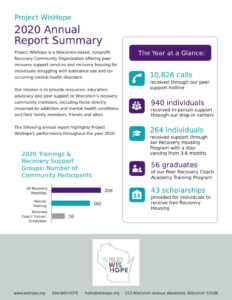Dear Future Self,
I live with substance use disorder. My behavior will always reflect a desire, or the suppression of a desire, to use. The way I treat others is up to me, and me alone. When I am actively using, I am not only using substances, but I am using the goodwill and empathy of others. I am using these substances and people as substances because I do not feel up to the task of caring for myself. For this reason, I will be dishonest, disrespectful, and desperate in the perpetual attempt to suffocate the absence of self-care that I feel on a daily basis. I will continue on this path until making the decision to give up using and take actionable steps to empower my recovery. Before that happens, I know what to expect from my own habits, and how they can isolate me from those closest to me.
Sincerely,
The Ugly Truth of My Addiction
WRITING A LETTER TO YOUR FUTURE SELF
Too often during recovery, individuals yearn to completely forget the past. Moving on is important, but living a life of fulfillment requires forgiving oneself for the past. The guilt of rock bottom can be crippling, but so can the denial of former transgressions. Writing a letter that contains the unfiltered truth about the nature of one’s particular addiction can act as a temporary reminder of a difficult period, without the distorted perspective applied through the passage of time.
The simplistic brilliance of addressing a letter to the future resides in the portability of the message. Like a box of old photos, this letter can provide a portal to the past without occupying an overwhelming mental burden for the recovering individual. When it is time to be reminded of these memories, the letter serves as a time capsule, preserved in a non-central space — both cognitively and physically. At other times, when these reminders can feel overwhelming, they are out of sight and out of mind.
HOW TO WRITE YOUR LETTER
Many people differ in their guidelines and tips for writing journal entries or addressing a letter to a “future self,” but the central tenet should be pursuing the truth of the moment above all else. At any given time, detailing the truth of one’s own specific situation might seem obvious, perhaps even redundant. After all, most people navigate their own lives with the assumption that they will remain steadfast in their convictions. In a way, if people were more in tune with the constantly changing nature of their own mood and perspective, beliefs might be more fluid — an attitude reinforced by the act of writing a letter to oneself.
The worldview of anyone sitting at their rock bottom paints a bleak and understandably cynical outlook. Usually, the circumstances surrounding this state of mind involve potentially trauma-inducing elements. Writing with the understanding that even if the reaction to this place and time might resemble indifference — some might describe the feeling as anhedonia—a very visceral and emotional reaction could result from revisiting one’s thoughts and feelings at a time when addiction is winning. Keeping that in mind, the specifics of people and places matter less than the mental or emotional details.
REMEMBERING TO FORGIVE YOURSELF
Sitting down and penning a message to a future self might not even make sense during the physical act of writing. With so much yet to be determined, who knows if you will stand to benefit from this effort? The answer, paradoxically, is you. Hearing your own words freshly on the heels of hitting rock bottom, rehabilitating, and surviving the self-destructive behavior of substance use disorder can provide a catharsis that is essential to remember the importance of self-care. Without hearing from a version of you who is desperately in need of self-love, this staple of contentment can be taken for granted. Recovery is more than those pink clouds over the hopeful sunset. It is an entire cycle.
Given a recognizable pattern of relapse and recovery, restarting seems repetitive and tiresome, doesn’t it? Such is the nature of any disease, disorder, and/or condition. Even when the symptoms are predictable, they create discomfort. It is for this reason that life fosters meaning — if every day was a walk in the park, it would be really easy to get sick of the park. Anyone coping with addiction can identify with recovery originating deep within the core of identity as a self-sought endeavor. The root of all alcohol and/or substance use disorders ultimately digs into the relationship a person has with themselves. Writing a letter to that same self provides an unparalleled opportunity to reconnect and forgive oneself for the ways they feel they have damaged their own well-being.
Addiction can reveal aspects of our character that we may want to hide from ourselves and others. Acknowledging the deeply entrenched capacity to put our personal pull towards alcohol and/or substances above the needs of others accepts the nature of use disorder. Writing a letter that describes these acknowledgments to the person you might be in the future puts these truths in a time capsule. During moments of weakness, a reflection on one’s own words may provide the kind of perspective that is only available to someone who truly understands their own ceiling for potential as well as their floor. At WisHope, we understand that the road to recovery is a life-lasting pursuit, and we aim to provide you the tools and resources to do this, long after your stay at our treatment facilities or recovery homes. Don’t wait to get help. To learn more, call WisHope today at (844) 947-4673.


